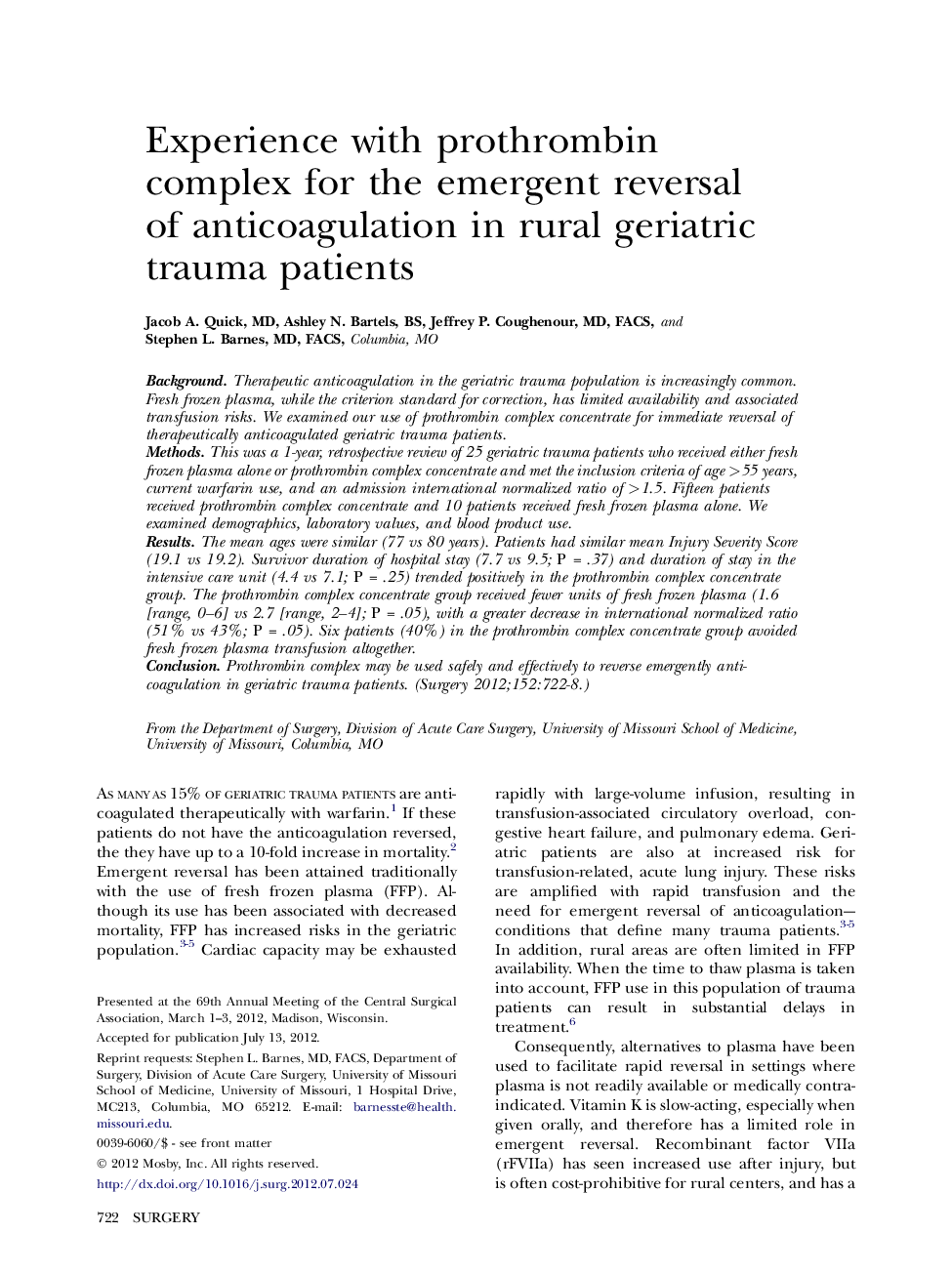| Article ID | Journal | Published Year | Pages | File Type |
|---|---|---|---|---|
| 4307840 | Surgery | 2012 | 7 Pages |
BackgroundTherapeutic anticoagulation in the geriatric trauma population is increasingly common. Fresh frozen plasma, while the criterion standard for correction, has limited availability and associated transfusion risks. We examined our use of prothrombin complex concentrate for immediate reversal of therapeutically anticoagulated geriatric trauma patients.MethodsThis was a 1-year, retrospective review of 25 geriatric trauma patients who received either fresh frozen plasma alone or prothrombin complex concentrate and met the inclusion criteria of age >55 years, current warfarin use, and an admission international normalized ratio of >1.5. Fifteen patients received prothrombin complex concentrate and 10 patients received fresh frozen plasma alone. We examined demographics, laboratory values, and blood product use.ResultsThe mean ages were similar (77 vs 80 years). Patients had similar mean Injury Severity Score (19.1 vs 19.2). Survivor duration of hospital stay (7.7 vs 9.5; P = .37) and duration of stay in the intensive care unit (4.4 vs 7.1; P = .25) trended positively in the prothrombin complex concentrate group. The prothrombin complex concentrate group received fewer units of fresh frozen plasma (1.6 [range, 0–6] vs 2.7 [range, 2–4]; P = .05), with a greater decrease in international normalized ratio (51% vs 43%; P = .05). Six patients (40%) in the prothrombin complex concentrate group avoided fresh frozen plasma transfusion altogether.ConclusionProthrombin complex may be used safely and effectively to reverse emergently anticoagulation in geriatric trauma patients.
